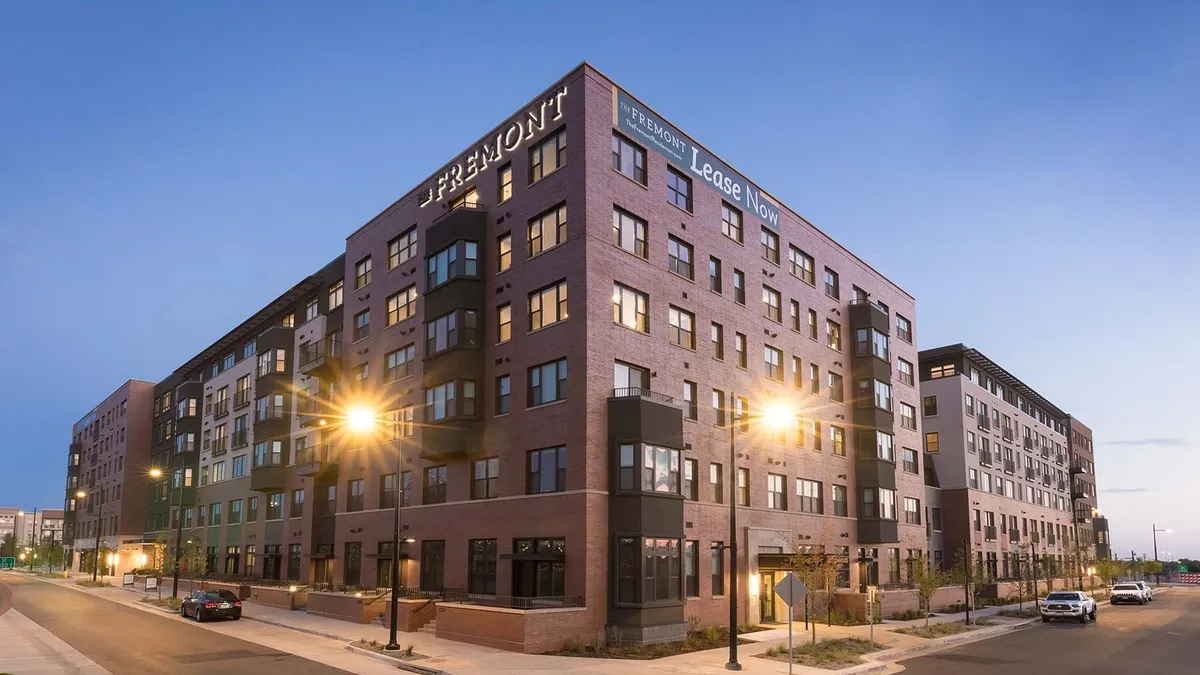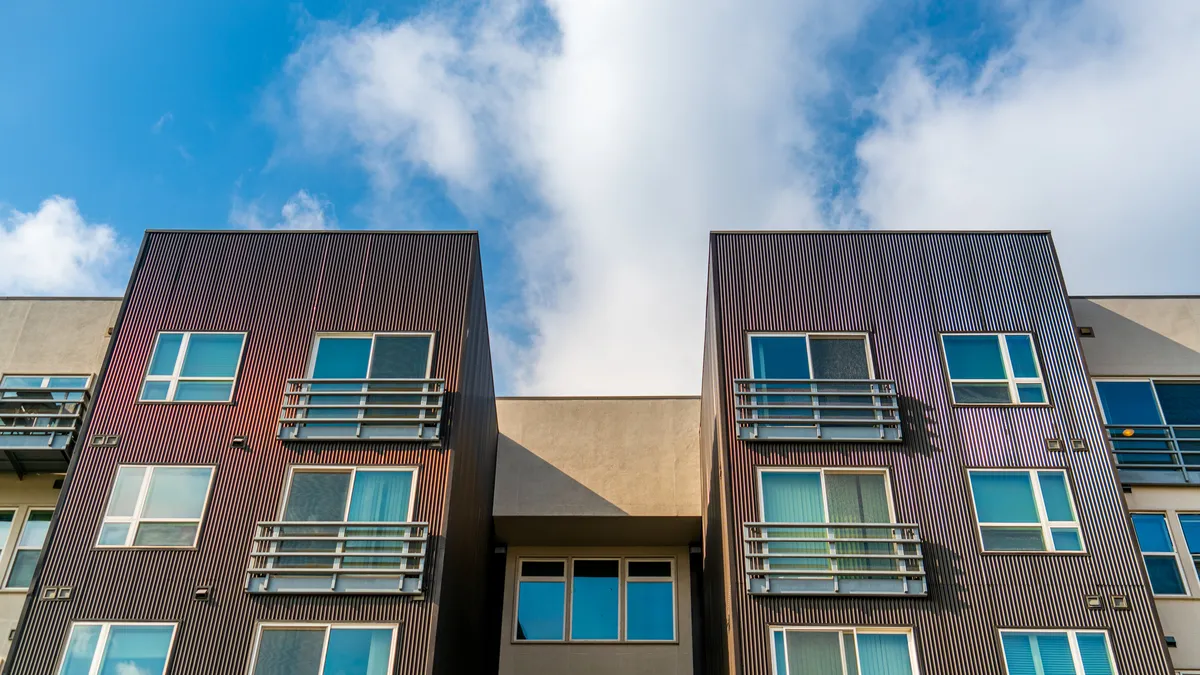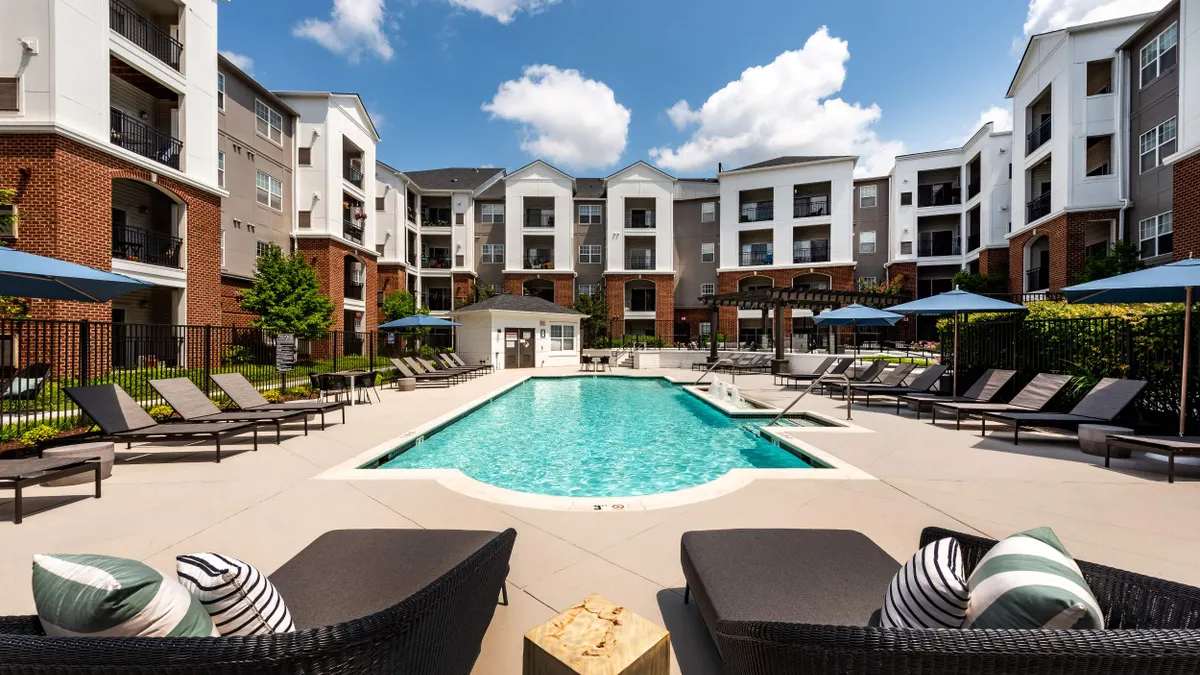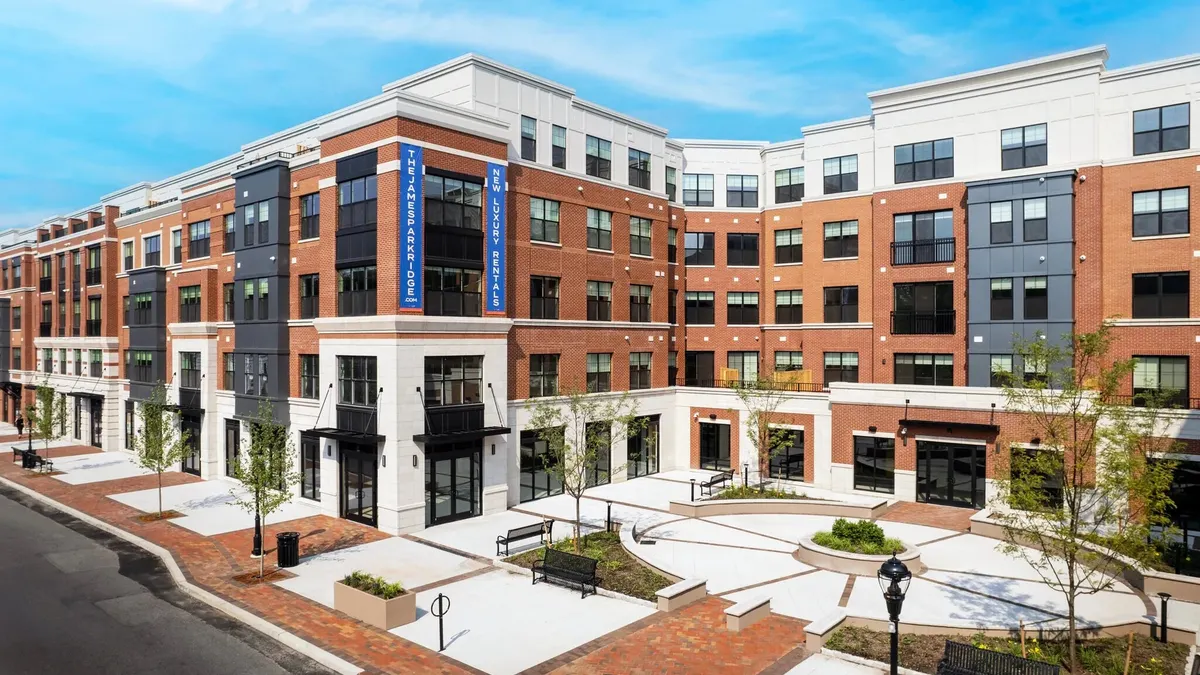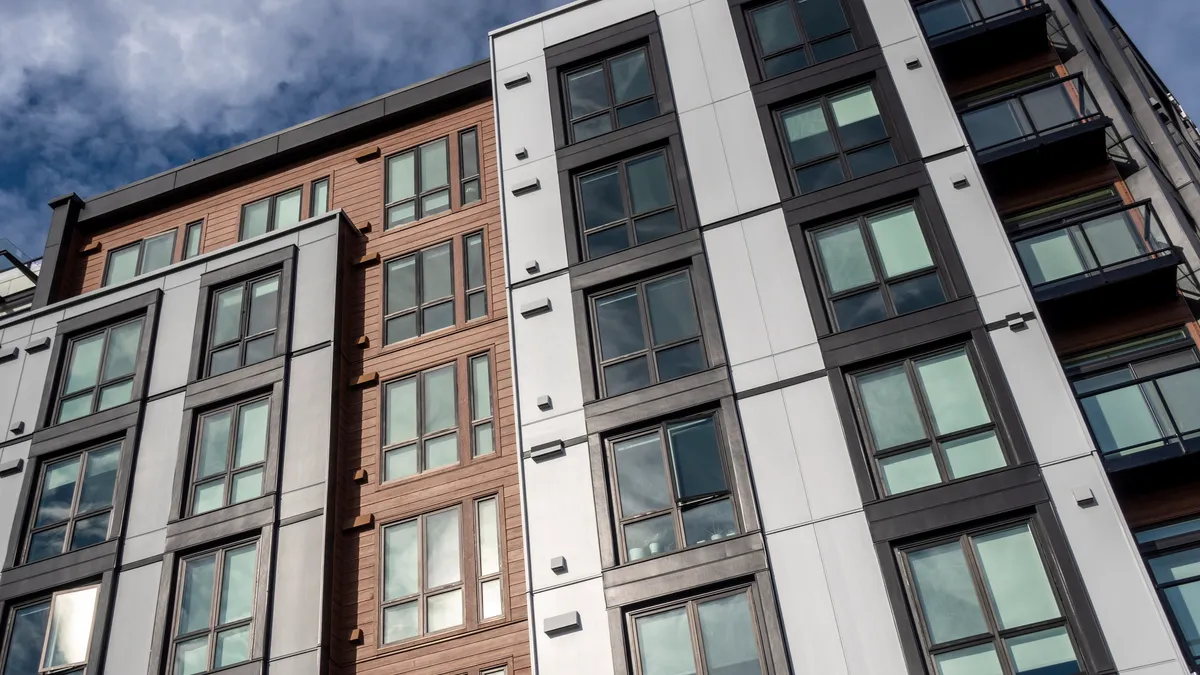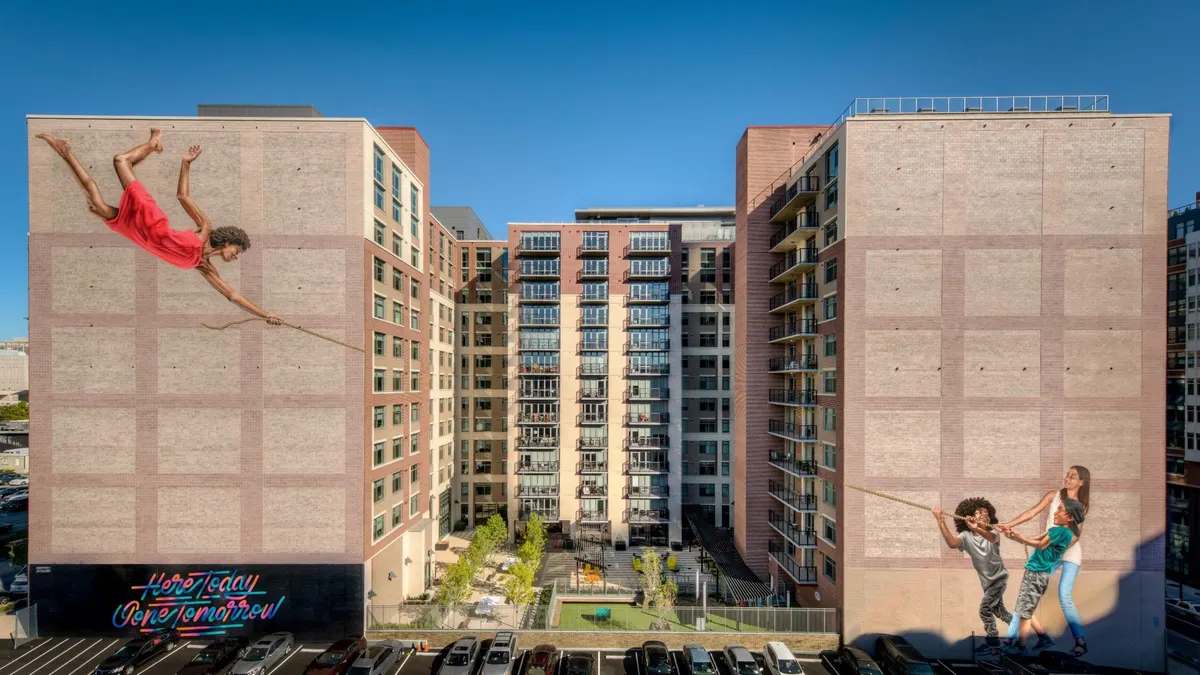When Haendel St. Juste, managing director of REITs for investment bank Mizuho Securities, first heard about Blackstone's $10 billion acquisition of Denver-based Apartment Income REIT Corp., he was surprised.
“There is usually a little bit of rumbling and some noise [before the announcement],” St. Juste told Multifamily Dive. “There is some chatter, and the stock starts moving. But this one just seemed to come out of left field.”
Making things even more surprising was that AIR wasn’t a distressed seller, and its near-term loan maturities were manageable, according to St. Juste. “There is nothing about them that suggested that they had to sell,” he said.
Once the initial news of the deal broke, St. Juste and other analysts put out research notes on the sale and its implications. In the process, they provided possible answers to four questions.
1. What is Blackstone getting?
Blackstone offered a 25% premium on AIR’s stock price. For that hefty price, Blackstone is getting 76 properties, totaling 27,010 units, in coastal markets. However, it still appears to be harvesting value from the portfolio by paying a 26% discount to the consensus net asset value, showing a gap between public and private real estate valuations.
“It feels like Blackstone's bet here is that the public markets are still mispricing this even with the premium that they're offering,” St. Juste said.
The vast majority of AIR’s net operating income comes from:
- Miami/South Florida (19.4%)
- Los Angeles (18.5%)
- Washington, D.C. (16.5%)
- San Diego (9.4%)
- Philadelphia (8.9%)
- San Francisco (8.4%)
- Boston (7.2%)
- Denver (7.0%)
AIR’s “sector-leading 2024 same-store revenue growth profile and markets nearing revenue lows for this cycle provide upside” for the private equity giant, St. Juste said in a research note.
After Blackstone’s acquisition of Sun Belt-focused Preferred Apartments Communities in the second quarter of 2022, AIR’s portfolio also provides geographic diversification. “We also see a sustainable near-term home unaffordability tailwind for rentership with mortgage rates near 7%,” St. Juste said.
2. What’s the cap rate?
Before the sale last week, AIR’s portfolio carried a cap rate of roughly 5.75%, according to St. Juste. In research released on the day the sale was announced, he estimated the implied cap rate that the New York City-based global real estate investor paid was roughly 5.9%.
“The transaction cap rate also sits near the midpoint of where coastal public apartment peers and Sun Belt peers were trading pre-announcement and in line with where national peer UDR was trading pre-deal announcement,” St. Juste said in the research note.
However, Raymond James Equity Research analyst Buck Horne pegged the deal price at an implied economic cap rate of 5.4% on fiscal year 2024 net operating income. He wrote that the purchase price was an approximately 7.5% discount to its most recent NAV estimate. On social media, some have put the cap rate even lower — below 5%.
The discrepancy may be a result of AIR’s deal structure. “This company introduced some joint ventures a quarter or so back,” St. Juste told Multifamily Dive. “So I think some people have seen some numbers as low as the low-fives. But we have a high five, almost six number, which is where a lot of our clients are.”
3. Is there a new bidder?
Blackstone’s purchase of AIR is expected to close in the third quarter. In the meantime, the REIT can accept competing bids.
However, a bid from another REIT isn’t probable, given that they have a higher weighted average cost of capital and would be subject to higher interest rates, according to St. Juste.
Horne agrees. “Given the size and all-cash nature of the deal, we think a competing bid from another publicly traded REIT is unlikely,” he said in a research note.
If other competitors do emerge for the AIR portfolio, they’d probably be highly leveraged buyers. “Though an alternate bid is always possible, it would likely have to come from another private equity REIT fund, in our view,” Horne said.
4. Are more deals coming?
Alexander Goldfarb, managing director and senior research analyst for investment bank and financial services company Piper Sandler, wrote in a research note on the day of the sale that there is potential for outsized rent growth for multifamily in the 2026-2028 timeframe, assuming that the current peak supply is sufficiently absorbed by 2025. That scenario could prove enticing to any number of big private equity players.
“Equity capital is never the issue, as players like Blackstone, Brookfield and other similar platforms prove adept at raising equity from domestic and foreign institutions attracted to hard assets,” Goldfarb wrote.
More apartment REITs could potentially be in play, with Blackstone establishing “a clear near-term valuation floor for those companies,” Horne wrote.
But St. Juste thinks it will be difficult for private bidders to take out any of the six largest REITs, which include Essex Property Trust, AvalonBay Communities, Camden Property Trust, MAA, Equity Residential and UDR.
“There is an opportunity for private capital, when thinking about this recovery in apartments, to jump in here with where the valuations are,” St. Juste said. “But the six companies that are left are really good companies and they're going to have to get some sizable discounts and bigger checks. If you buy an AvalonBay, that’s probably a $30 billion or $40 billion check.”
Click here to sign up to receive multifamily and apartment news like this article in your inbox every weekday.



